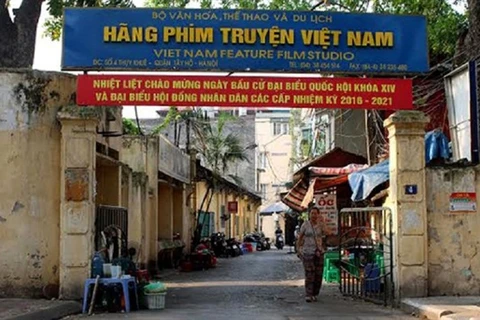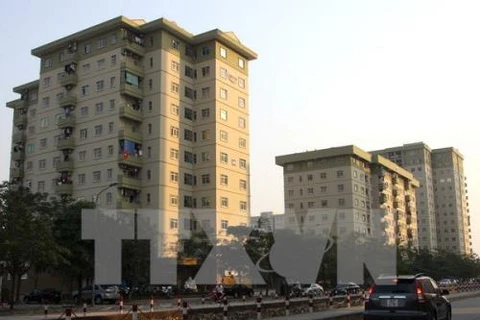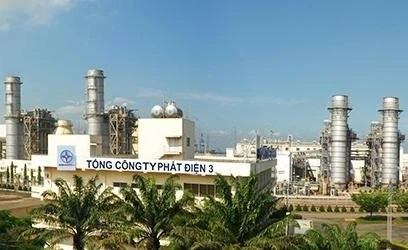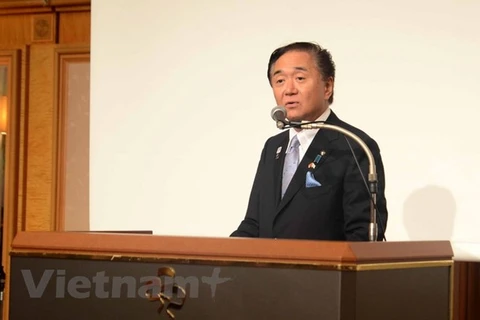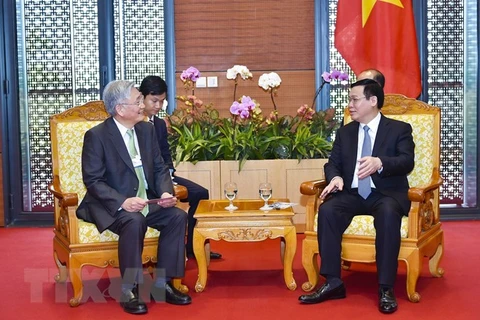 Vinalines has decided to sell the shares planned for strategic investors to the public. (Photo: cafef.vn)
Vinalines has decided to sell the shares planned for strategic investors to the public. (Photo: cafef.vn) Hanoi (VNS/VNA) - Many State-owned enterprises (SOEs) are finding it difficult to seek strategic investors following equitisation and have decided to retain the shares or sell them to the public.
A number of big State corporations have conducted initial public offerings (IPOs) since the beginning of the year but failed to select strategic investors, including Binh Son Refining and Petrochemical Joint Stock Company (BSR), PV Oil, PV Power, Vietnam Rubber Group (VRG) and Power Generation Corporation 3 (EVN Genco 3).
Decree 126/2017/ND-CP on the equitisation of SOEs, which took effect on January 1, 2018, stipulates that shares offered to qualified strategic investors must be completed after the public offering and before the first general shareholders’ meeting.
In its first general shareholders’ meeting on June 26 this year, PV Power announced it would cancel the previously approved strategic investor plan and transfer these shares to PetroVietnam, which represents the State capital in the corporation.
PV Power made the public offer on December 31, 2017 but could not select strategic investors before its shareholders’ meeting.
According to PV Power Chairman Ho Cong Ky, the four-month period was too short for the company to complete its share sale to strategic investors since its equitisation plan was approved in early December last year.
The company had asked for an extension to July this year but was rejected by the Ministry of Finance. Therefore, the company would not select strategic shareholders, Ky said.
The entire 28.82-per-cent stake previously intended for strategic investors thus will be transferred to PetroVietnam. The transfer will lift the State’s share of capital here to 79.97 percent. PetroVietnam will float these stakes later, following the State capital divestment regulations in a suitable time.
Similarly, PV Oil decided to postpone the strategic investor plan after the Government refused its request for additional time for this sale.
After the IPO on January 25, 2018, PV Oil actively sought strategic investors. Four investors sent confirmation letters to participate in the share auction, including investors from Japan, South Korea and Vietnam.
To ensure the feasibility of the selling process, PV Oil asked the authorities for another four months to conduct the sale, but the Government said no.
According to Cao Hoai Duong, PV Oil’s General Director, conducting due diligence would take investors a lot of time and money.
Economist Nguyen Tri Hieu agreed that conducting due diligence (the process of investigating a business before signing a contract) takes a lot of time, especially for large SOEs with complex asset structure. He said this process often takes about one year.
Some also could not find strategic investors due to the small size of their stake offers, such as Vietnam Rubber Group, which planned to sell less than 12 percent to strategic investors. Others struggled to find strategic investors because of conditions on their business, such as Thanh Le General Import-Export Trading Corporation and Dong Thap Petroleum Trading Import Export Co, whose petroleum trading is restricted to foreign ownership.
Besides policy constraints, the ineffective performance of equitised SOEs makes them unattractive to investors.
Vinalines, which conducted its IPO on September 5, had a time when its cumulative losses reached 22 trillion VND (944.2 million USD) and was on verge of bankruptcy. After debt structuring and asset liquidation before IPO, it still incurred total losses of over 3.25 trillion VND by the end of 2017.
PV Oil also suffered a big loss before its IPO and had incurred cumulative losses of 1.7 trillion VND as of June 30, 2018.
The IPO of Power Generation Corporation 3 (EVN Genco 3) on February 9 also saw a measly 3 percent of stakes successfully sold, far below its target of just over 12.8 percent. This company had a high debt ratio of about 80 percent of total assets.
Finding it hard to attract strategic investors, some enterprises opted instead to sell these shares to the public such as Vinalines and Binh Duong Manufacturing & Import Export Corporation (Protrade).
According to Hieu, Vietnamese Government is working well to manage the macro-economy. However, in order to attract strategic capital, businesses should build strong inner values.-VNS/VNA
VNA
